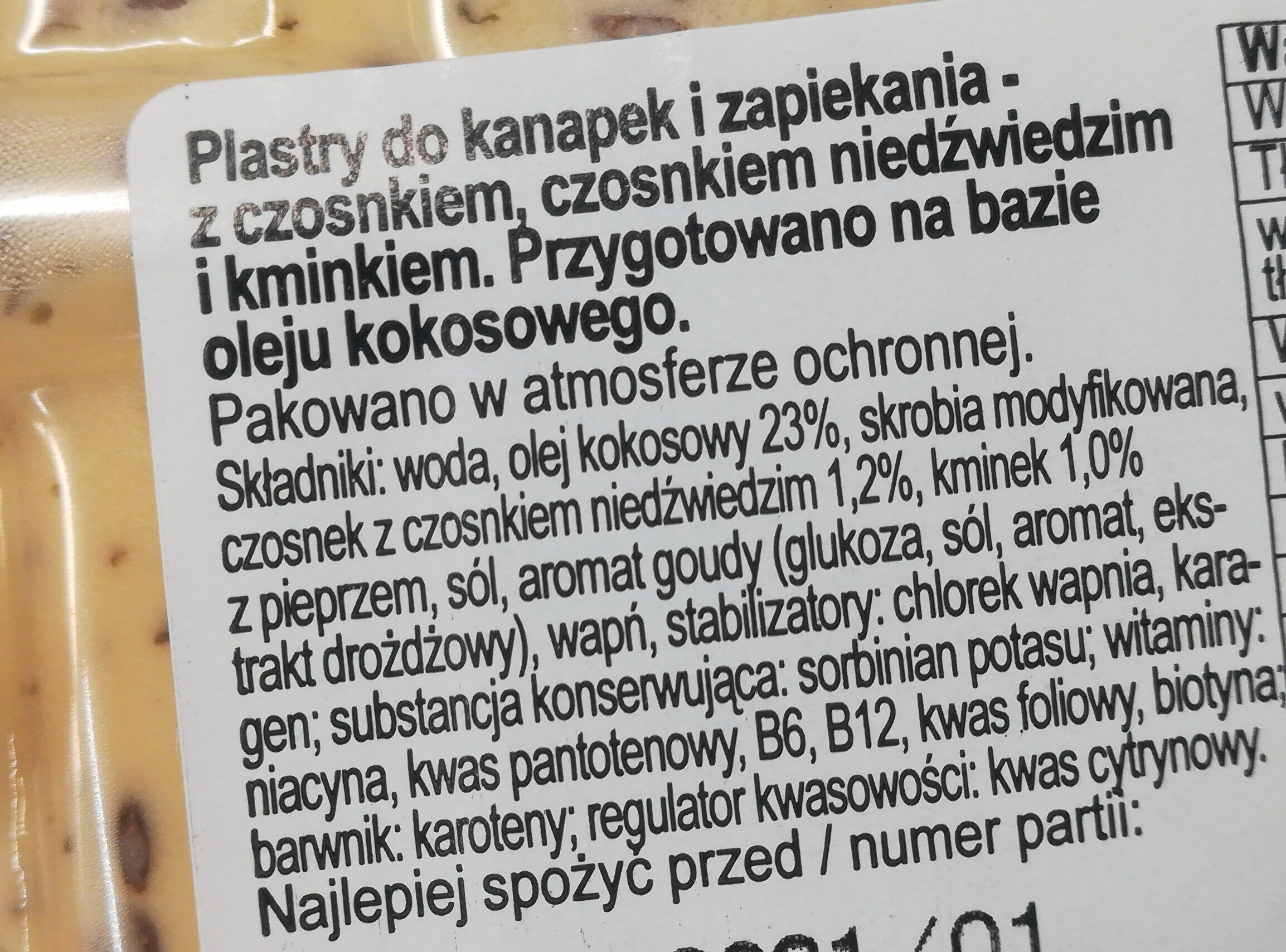Pastry ser -
This product page is not complete. You can help to complete it by editing it and adding more data from the photos we have, or by taking more photos using the app for Android or iPhone/iPad. Thank you!
×
Barcode: 5900120090149 (EAN / EAN-13)
Common name: Plastry do kanapek i zapiekania z czosnkiem, czosnkiem niedźwiedzim i kminkiem
Countries where sold: Poland




